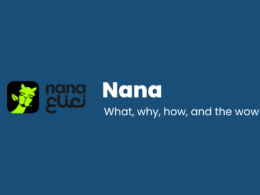Today, some of the most pressing challenges faced by African merchants in terms of sourcing dollars is the card network system. As the transaction often takes three days for a local debit card, and sometimes even more for an international debit card to process.
Hence, with this problem in mind and to develop a payments route locally for local use, Union54 was launched. Although, a card-issuing platform isn’t in the best position to tackle such problems head-on. Doing so requires creating a different payment application for Africa, and that’s an audacious task of its own. Yet, that’s exactly what Union54 intends to accomplish by creating its card scheme.
Card schemes are payment networks linked to payment cards, such as debit or credit cards. The most popular card schemes globally are Union Pay, Visa, and Mastercard.
In the U.S., there are other schemes such as Amex, Discover, and American Express. But in Africa, Visa and Mastercard dominate the market share; for example, in South Africa, the distribution of cardholders with Visa is 51% compared to Mastercard’s 48%. So, how does Union54 plan on putting a dent in this Visa-dominant market?
What is Union54?
Union54’s API allows software companies from the African continent to issue and manage their debit cards without requiring a bank or a third-party processor, enabling cross-border payments and easing the overall process.
Co-founders and couple Perseus Mlambo and Alessandra Martini started Union54 in 2021 as a spinoff from their previous company, Zazu (a challenger bank they launched six years ago) when they went through the painstaking processes to issue debit cards.
Union54 hopes to create a homegrown alternative to Mastercard or Visa. In addition to helping merchants solve their settlement and sourcing issues, Mlambo offered more insight into why the company chose to pursue this route. According to him, recent global events like Visa and Mastercard pulling out from Russia, leaving China’s UnionPay to fill in the void, have made it evident that payments are a politicized endeavor.
He futher told Technext:
The purpose of creating another card network is an inspiration of what’s happening right now. Number one, we’re vulnerable and hostage to any political decisions that might affect trade on the continent. And if anything were to happen, we would wake up and would not have access to our funds.
Background of Founders

Perseus Mlambo
Perseus is the founder and CEO of the Africa-based company, Zazu. He has previously served at the Ethics Office of the UNHCR and has spoken at the European Commission about how inclusive digital technologies are the key to unlocking Africa’s potential.
Alessandra Martini
Alessandra completed her Master’s at the London School of Economics(LSE) in African Development. She was also an Erasmus Scholar during her undergrad. After completing graduation, she served at a number of international firms in different capacities, until, in 2016 she co-founded and became the COO of Zazu.
Why Union54
The company aims to create a homegrown alternative to worldwide known card issuers Mastercard and Visa, which dominate the continent but impose higher fees for merchants.
Since its launch in October 2021, Union54 has grown to issue slightly over half a million virtual debit cards to its customers.
CEO Perseus Mlambo disclosed to TechCrunch that Union54’s revenue in its first month (October) was a little less than $3,000. In November, the company’s revenue increased by 600% and has subsequently grown 50% month-on-month since then.
Union54’s CEO and founder, Perseus Mlambo, believes that reaching an agreement with participating central banks from Africa might make his company more trustworthy in the eyes of merchants and investors and could lead to it issuing a domestic and continental debit card, to shorten settlement time, and integrate more local payment methods and APMs.
How Does it Generate Value?
With Union54, the founders are taking on a pan-African problem, not a Zambian one.
Essentially, here’s how the interchange works — Union54 onboards a fintech company and the company uses Union54’s API to issue a single card to an employee. When the employee uses the card to pay for stuff online, perhaps a Netflix subscription, the fintech earns 1% of that transaction.
While that might look minute, imagine a fintech that uses Union54’s API to issue cards to more than 20,000 customers who use it frequently. That’s where the Zambian startup hopes to create value: to help fintech earn significant revenue from interchange without doing a lot of the heavy lifting linked with card management.
Funding Raised
Seed Extension Round: Raised $12 million
In April 2022, the fintech raised $12 million in a seed extension round led by Tiger Global. Other participating investors in this financing round included existing ones such as Vibe VC and new investors Earl Grey Capital and Packy Mccormick’s Not Boring Capital.
Seed Round: Raised $3 million
In October 2021, the startup raised a $3 million seed round led by Tiger Global Management, only two months after graduating from Y Combinator’s summer batch.
Other participating investors included:
- San Francisco-based venture capital firm Runa Capital
- Ace & Company
- Todd & Rahul Angel Fund
- Vibe VC
The Zambian fintech also received checks from angel investors such as Babs Ogundeyi, the CEO of Nigerian neobank Kuda; Risana Zitha, managing director of Renaissance Capital; and Gbenga Ajayi, former director of SMB Growth at Wise
Pre-Seed Round: Raised $125k
In August 2021, the startup raised $125k after participating in Y Combinator’s summer batch.
Future Prospects
Over the course of the past few months, the company has learned that developing a card scheme is not a technical problem so much as it is a trust problem. Trusting that merchants will get settled on time, that merchants don’t lose money across currency conversions and that consumers trust the card itself are crucial to making this work. The company plans to get nine central banks to establish this framework by the end of the year toward a pilot by Q2 2023.
Union54 plans to use this investment to ramp up recruitment across engineering, product, marketing, and sales teams. The Zambian company will also use the funds to expand its regional customer base.








